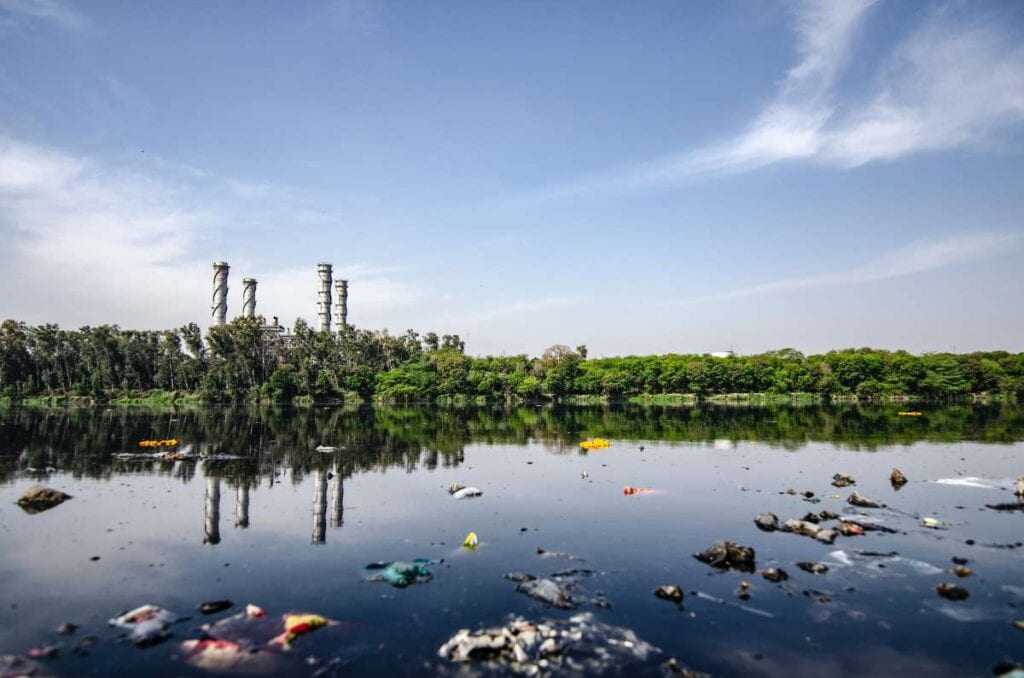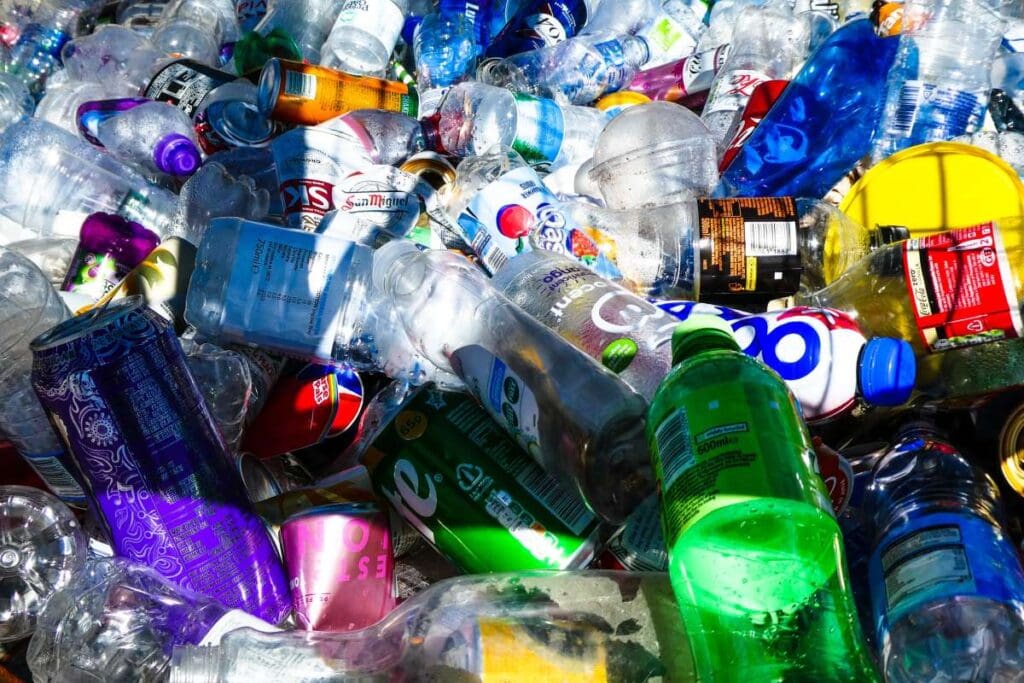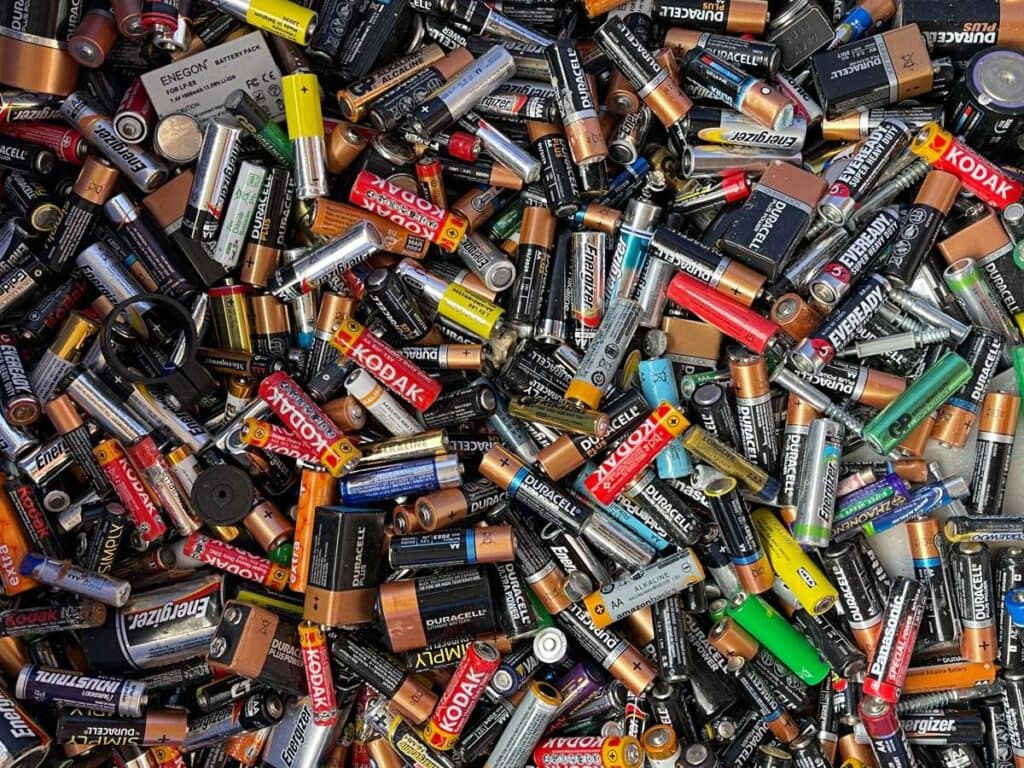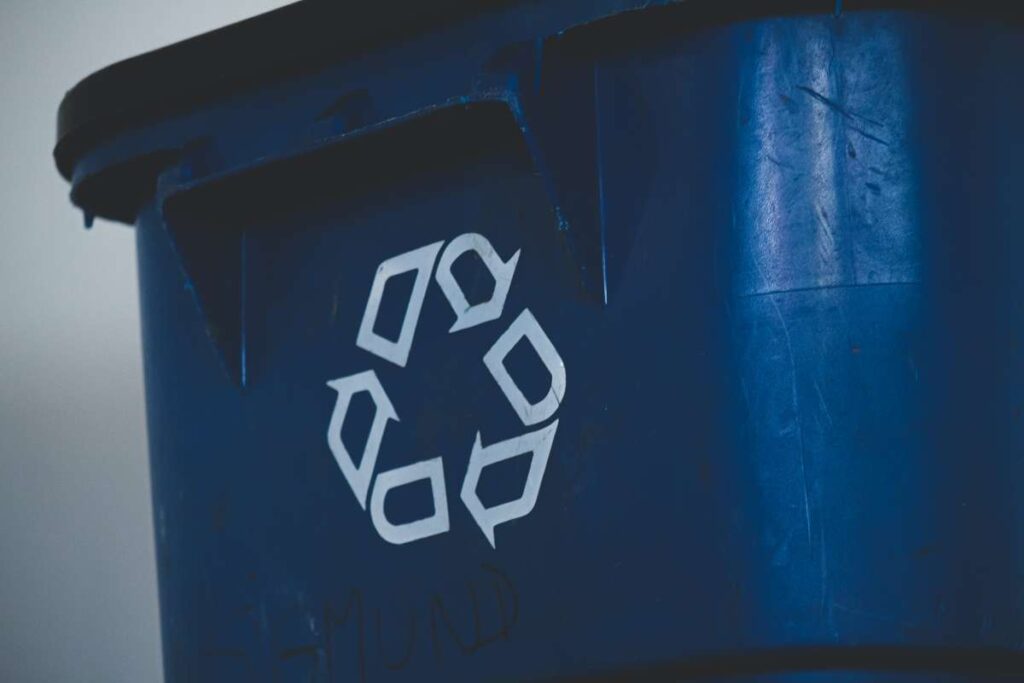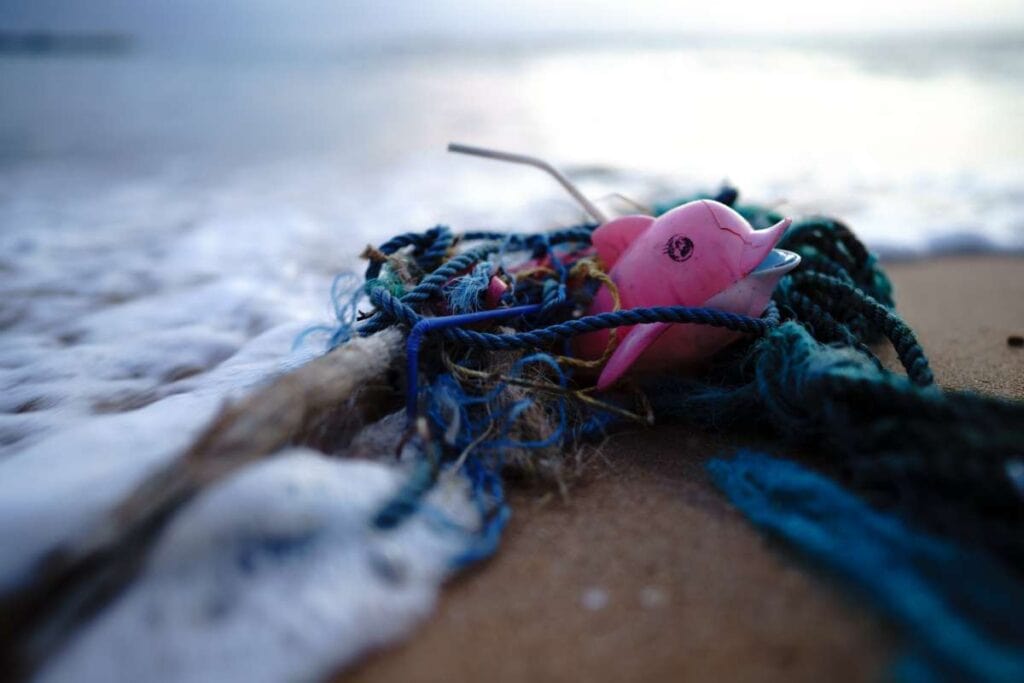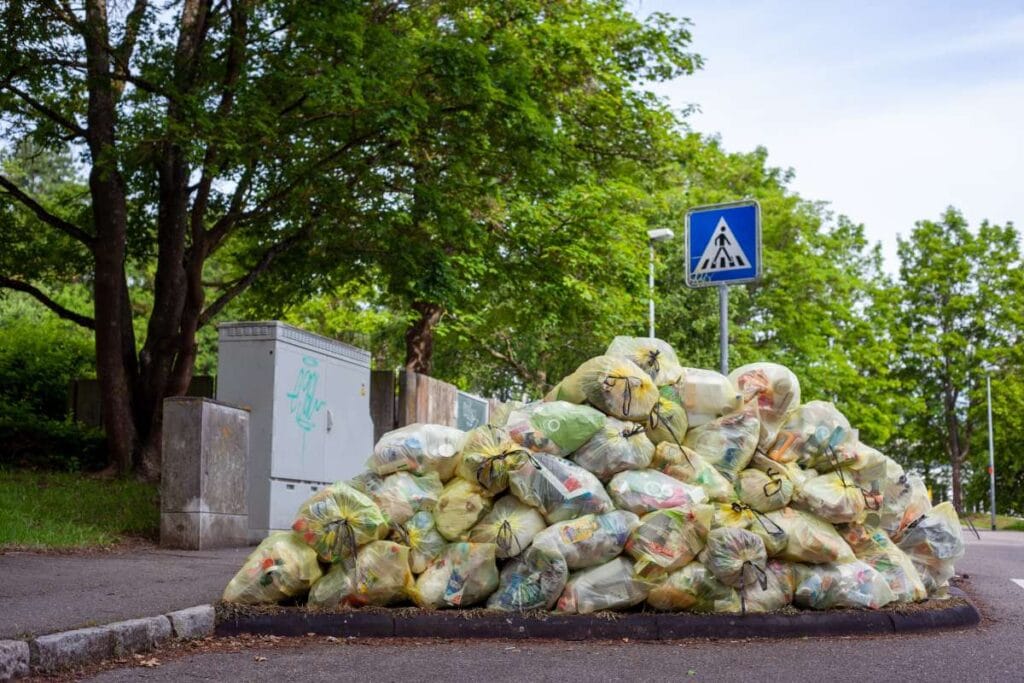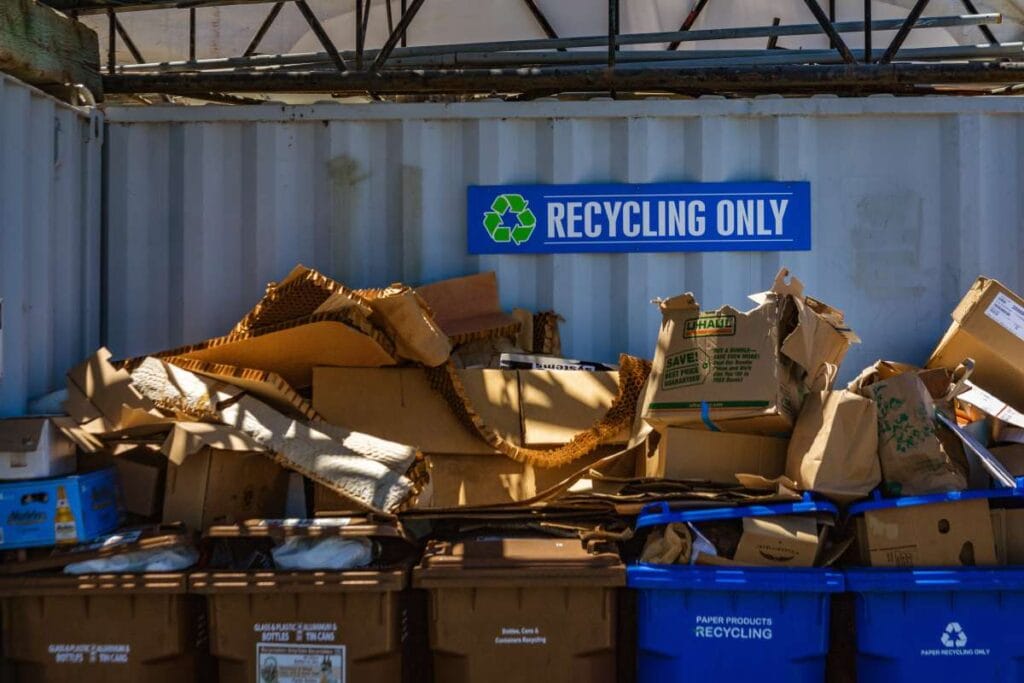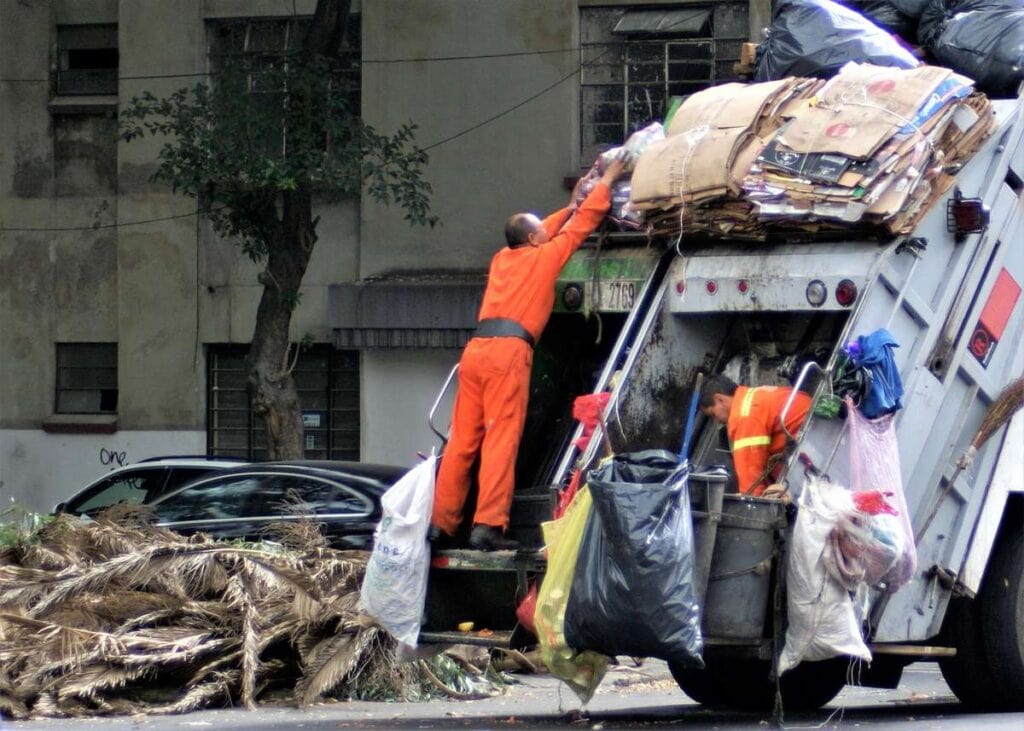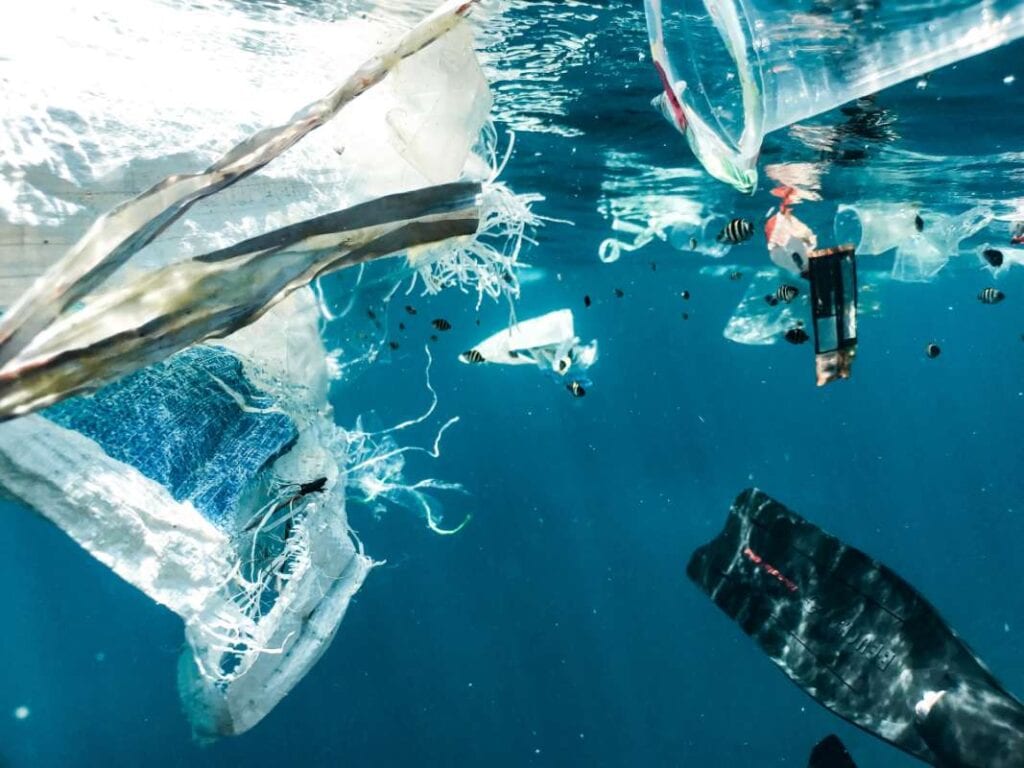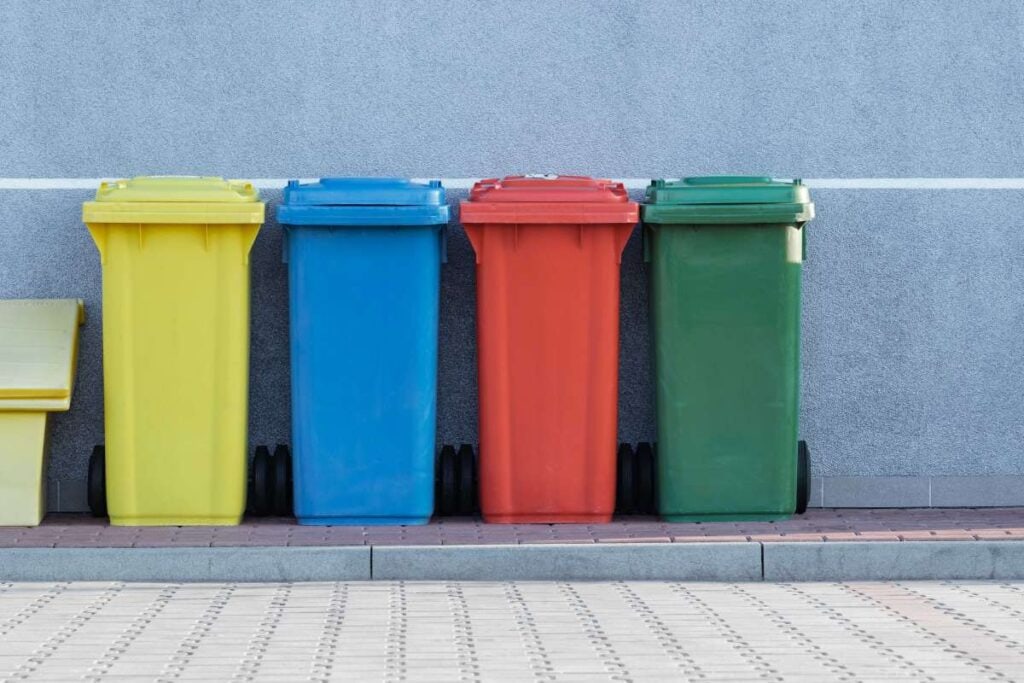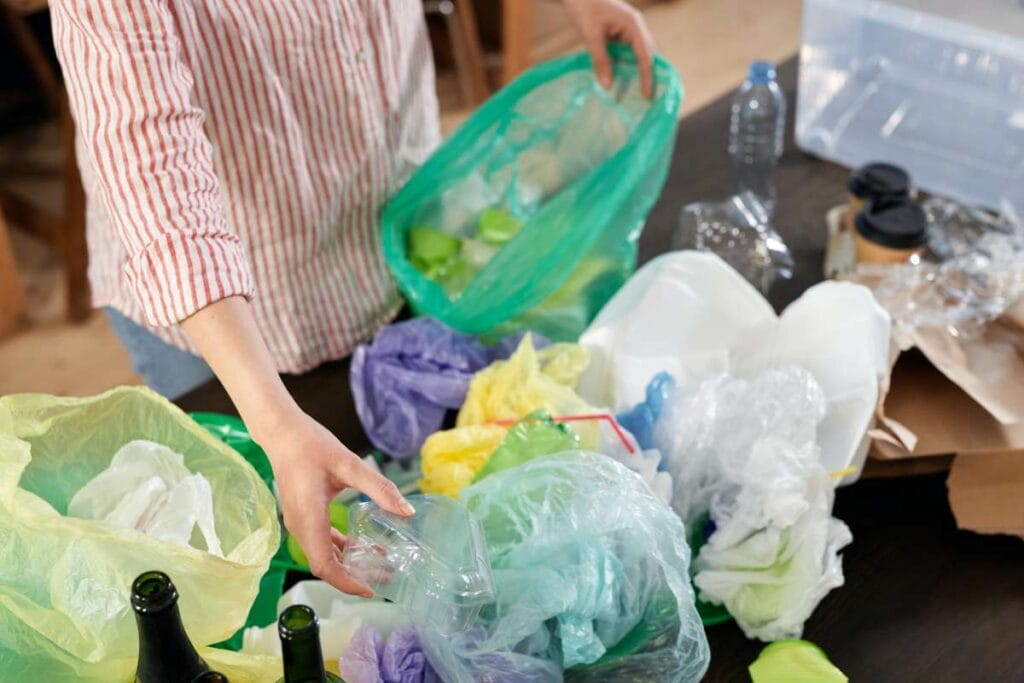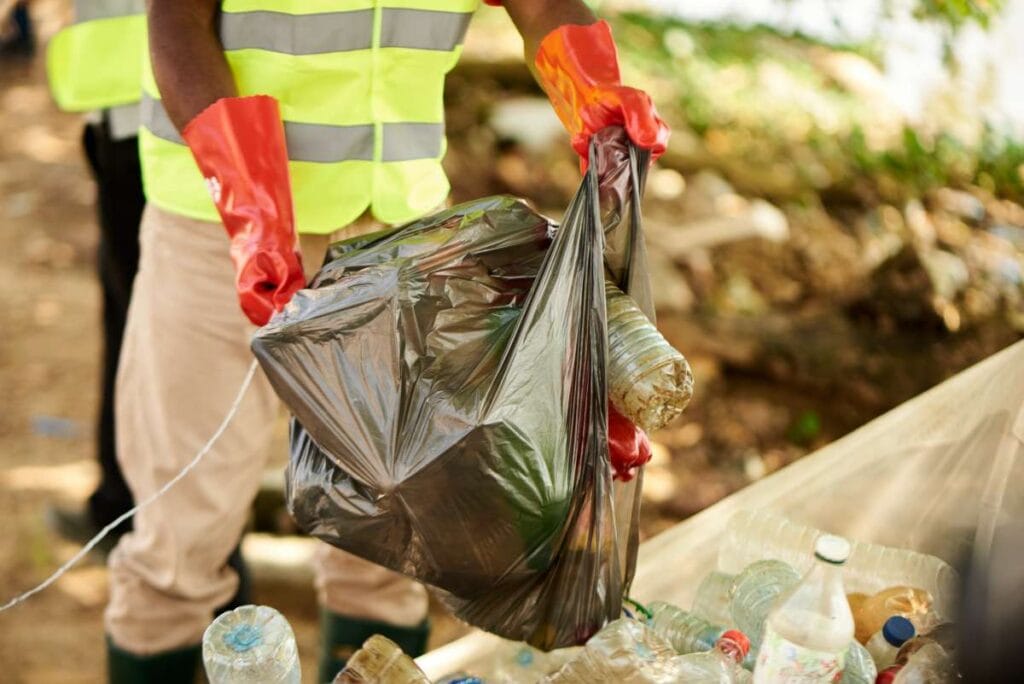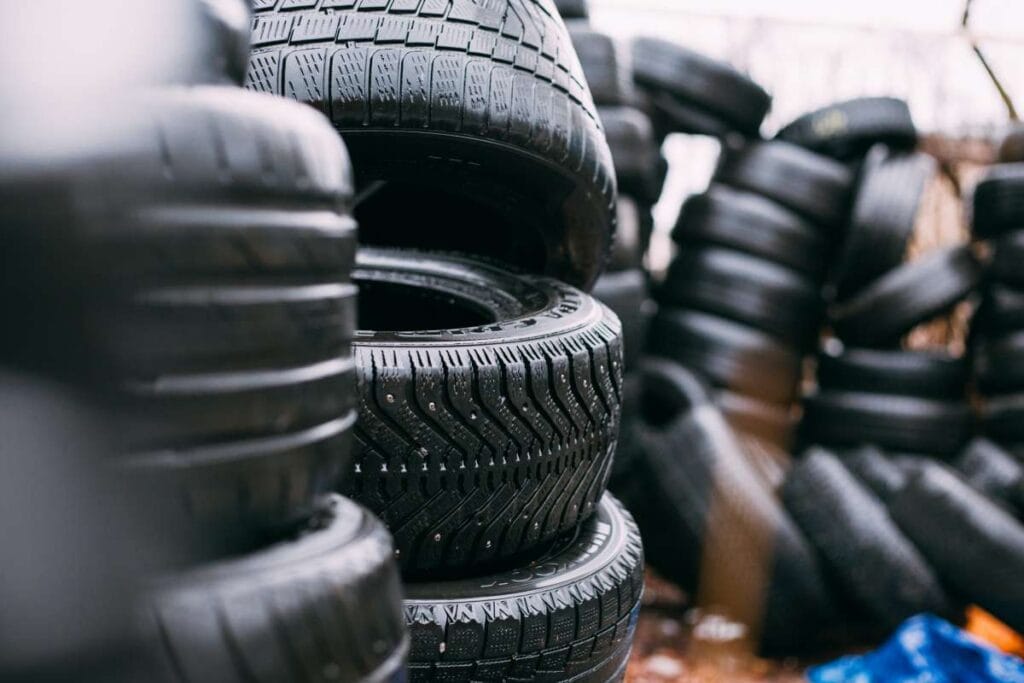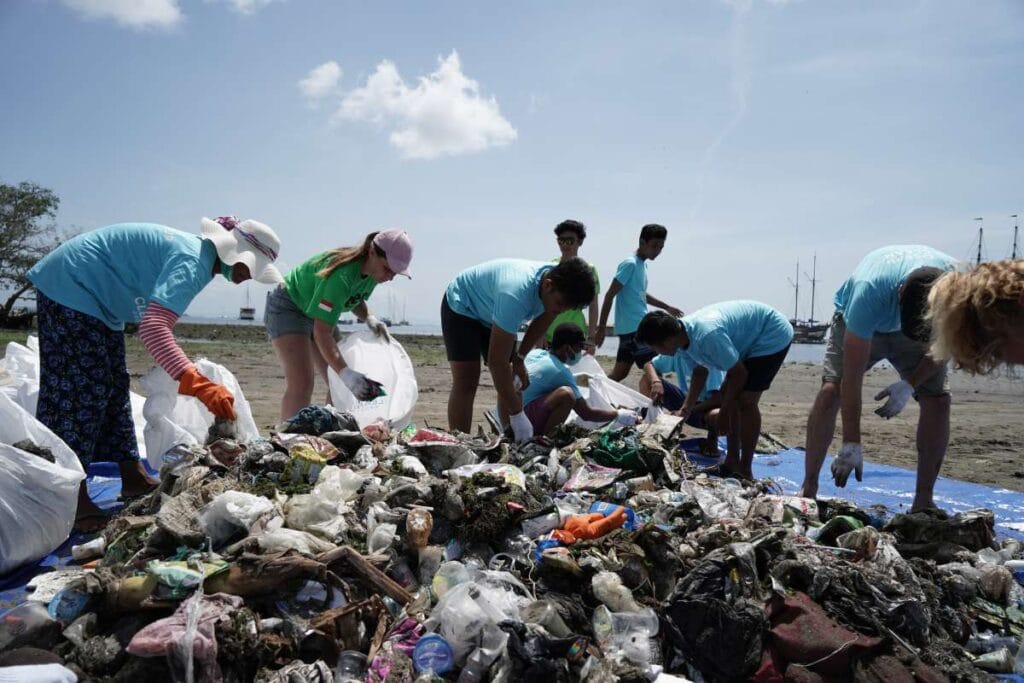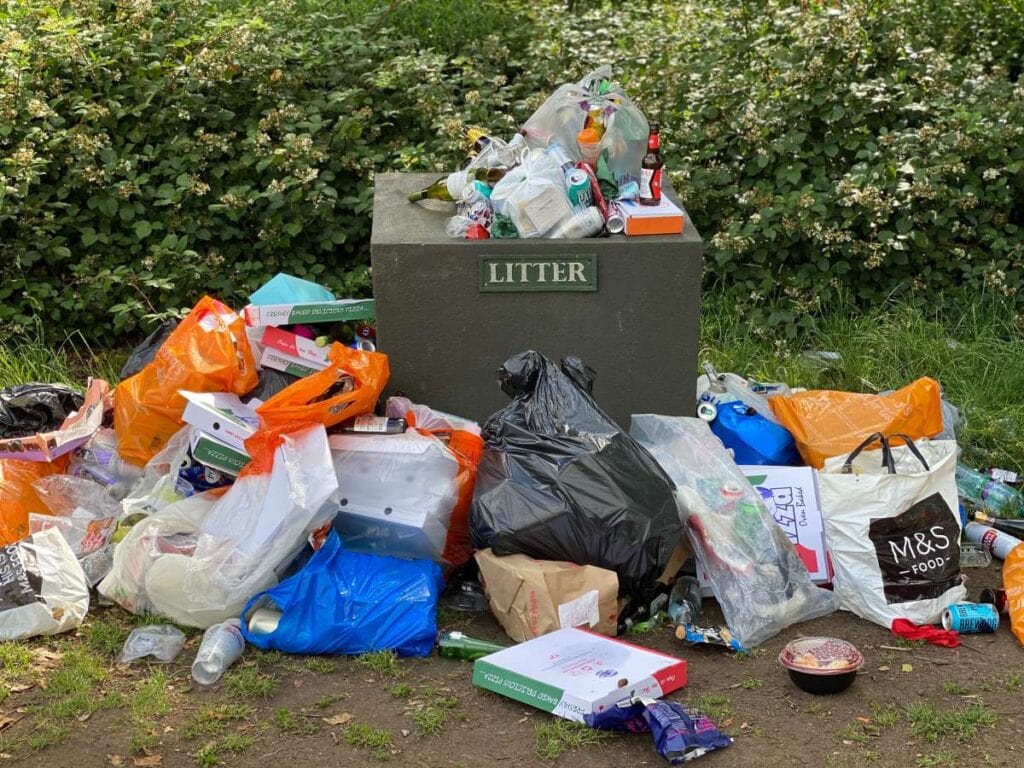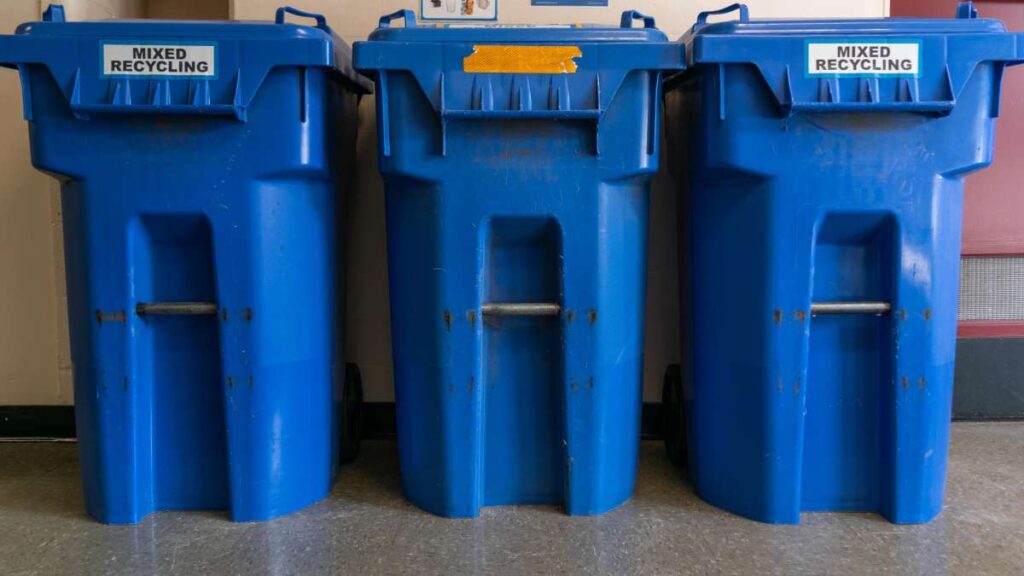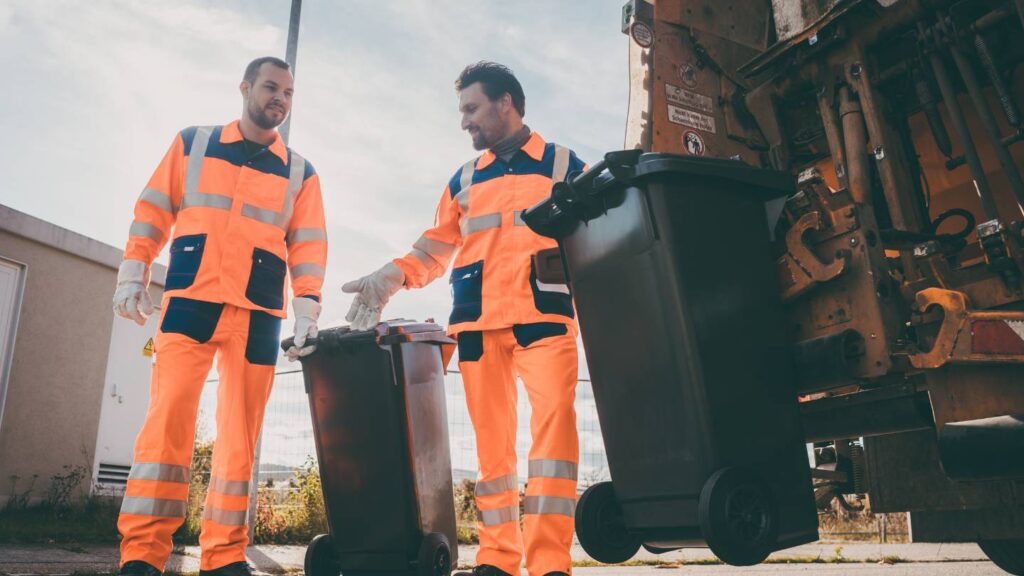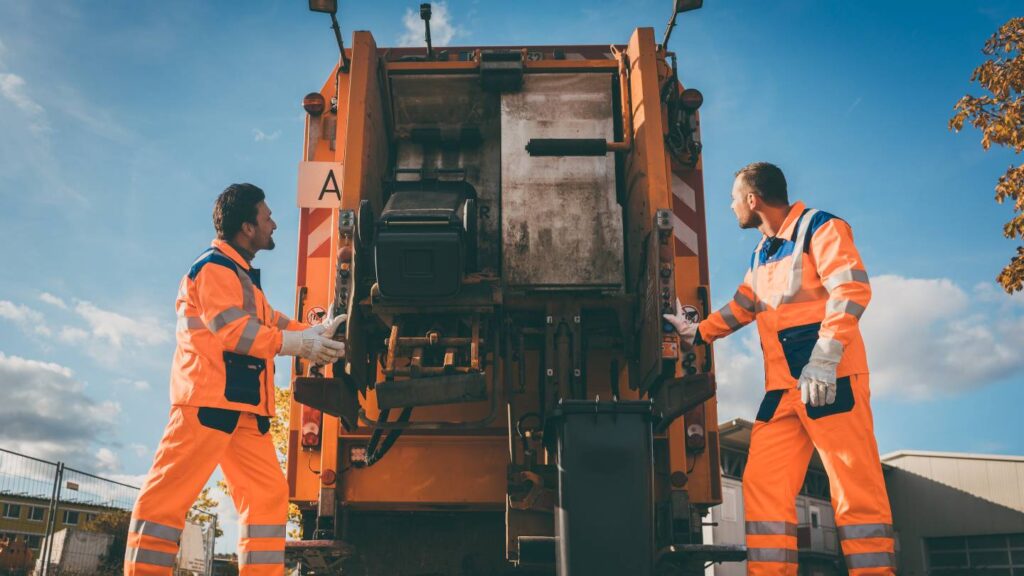Numerous sectors generate hazardous waste, which must be safely discarded to avoid unintended consequences. Dangerous garbage is bad for people, animals, and the planet. To guarantee that all waste is properly disposed of and that as much of it as possible is recycled, your company needs an efficient waste management recycling scheme.
Managing and disposing of hazardous waste is becoming increasingly important as human and commercial waste production rises. Knowing what hazardous waste is and how to properly dispose of it is crucial to preventing harm to people and the environment. The definition, classification, and proper management of hazardous waste will all be discussed below. When you're done reading this, you'll know more about how to deal with potentially dangerous garbage at home, in the workplace, or in the neighbourhood.
What Is Defined As Hazardous Waste?
Solids, liquids, sludges, and contained gases all fall under the umbrella of "hazardous waste," the majority of which is created during the chemical manufacturing and processing processes. Typical household waste includes solvents from cleaning, used acids and bases, metal finishing waste, painting waste, air and water pollution control unit sludges, and many other materials. Biological, chemical, and physical characteristics help organise them into useful categories for manufacturing. Toxic, reactive, ignitable, infectious, and radioactive substances are all produced by this combination of characteristics.
The first step in disposal involves determining whether or not the trash in question poses any danger. Codes and labels are commonly used for this purpose. Most products found in the average home are safe to use as directed and shouldn't cause any harm to the environment if thrown away properly. When used incorrectly, stored incorrectly, or discarded improperly, however, these items can become hazardous. Mishandling hazardous materials by disposing of them in the wrong containers or flushing them down the toilet is a common problem.
How To Dispose Of Hazardous Waste
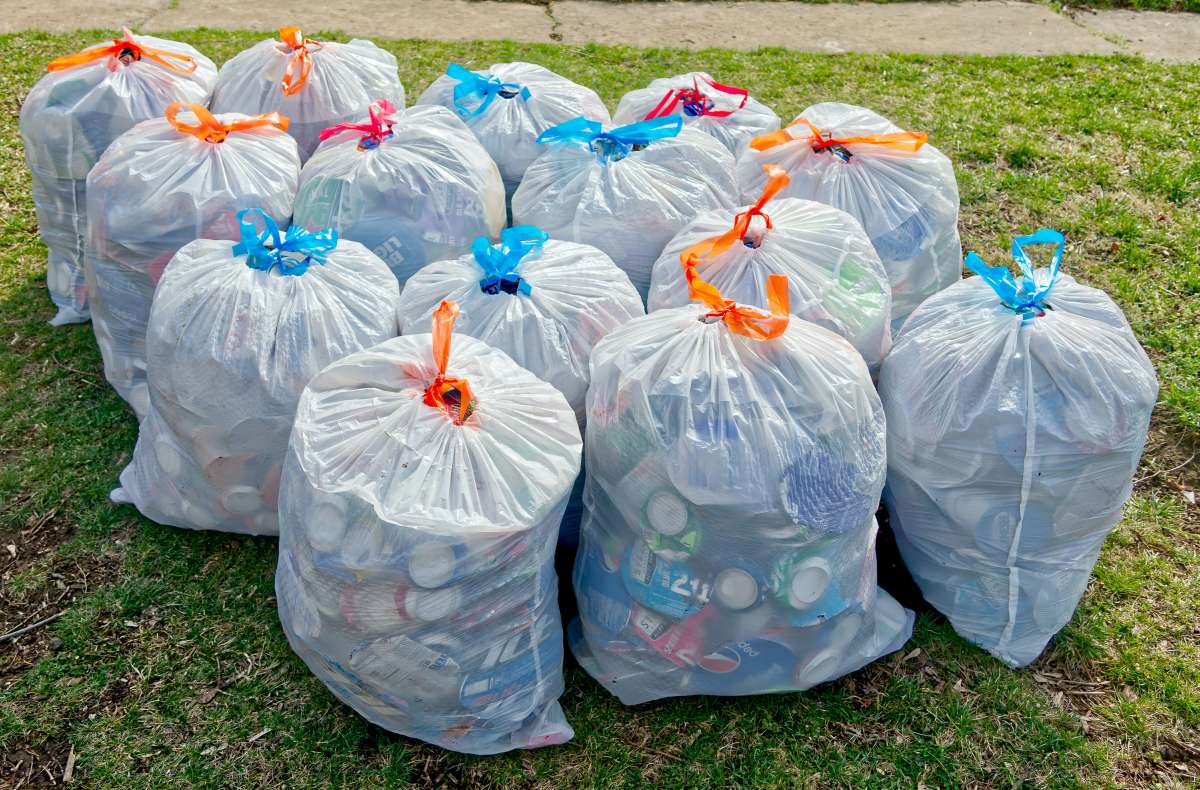
When waiting for an appropriate disposal method, hazardous wastes must be stored safely. Household hazardous waste in Victoria can be recycled or disposed of through a number of different programmes. Case in point:
- Computers are made from recyclable materials because of the high value of the resources they contain. Furthermore, they contain chemicals that, if not disposed of correctly, could be harmful to the environment.
- Byteback is a programme in Victoria that allows people to donate and recycle their old computer parts. Some municipalities and manufacturers even offer a recycling programme for old computers and other electronic waste. You can get more information by contacting the manufacturer or the local government office.
- Heavy metals can be found in some mobile phones and their accessories, including batteries. The mobile phone industry's recycling programme, used mobile phones can be recycled at mobile phone retailers, some banks, and other retail stores.
- A few Batteryback or company-owned retail locations will accept rechargeable batteries, and there are also Detox your home collections and some permanent sites.
- Many municipal waste transfer stations, landfills, and major battery retailers accept used car batteries for recycling. Make some calls to the city hall.
- Liquefied petroleum gas (LPG) cylinders, such as those used in grills, patio heaters, RVs, tents, and lamps. Retailers often offer swap programmes in which customers can return their empty cylinders to receive a new one, have theirs refilled, or have them recycled. There could be a cost involved.
- Oils from used cars can be reused. Over a hundred of Victoria's transfer stations double as drop-off locations for used motor oil. The maximum amount of used motor oil that can be returned in one visit is 20 litres. Get in touch with your city hall, or consult the Oil phone book.
- Cartridges for laser printers and inkjet printers can be recycled at Australia Post and Harvey Norman stores.
- Detox your home collections. Certain stores and long-term sites accept fluorescent tubes, compact fluorescent globes (CFLs), and other mercury products, as well as mercury spills.
- Recyclable plastic grocery bags can be dropped off at most grocery stores' designated recycling bins. If they aren't recycled or disposed of properly, plastic shopping bags create an unsightly litter problem. These bags pose a potential danger to wildlife if they end up in waterways.
- Medications that have been used but are no longer needed can be returned to a pharmacy through the Return of Unwanted Medicines programme. Keep all medications out of the reach of children until they are ready to be thrown away.
Hazardous Waste Disposal Methods
Hazardous waste disposal is more difficult than regular municipal waste disposal because of the risks that hazardous waste poses to people and the environment. Consequently, only approved businesses may treat, manage, and dispose of such waste. Costly clean-up efforts are often necessary after improper disposal of hazardous waste in order to minimise contamination and damage to surrounding areas.
Hazardous waste, like other waste types, can be disposed of in a landfill; however, waste that is corrosive or flammable can pose threats to facilities. Regulators and environmentalists agree that only "secure" landfills should be used for the disposal of hazardous waste.
There is a recyclable hazardous material. Everything from batteries to oil-based paints to propane and butane tanks to automobile fluids to compact fluorescent light bulbs are all examples.
Chemical, thermal, biological, and physical methods are all viable alternatives for dealing with hazardous waste. Incineration, chemical neutralisation, and agricultural use are all good examples.
What Takes Place If Dangerous Waste Isn't Properly Disposed Of?
Never put poisonous or otherwise unusable materials from your home in the garbage, the toilet, the gutters, or the ground. What can happen if proper disposal procedures are not followed is as follows:
- When harmful chemicals and poisons are buried in the garden, they can seep into the ground or surface water. The soil, vegetation, and water supply may be adversely affected for a very long time.
- If garbage is dumped down the drain, it could corrode the pipes or clog the storm drains, which would lead to issues at the water treatment facilities.
- Thrown in with the regular trash; doing so poses a risk to the safety of trash collectors. If dumped in regular landfills, it could also contaminate water supplies. Only in specially constructed landfills should hazardous waste be kept.
- When not recycled or disposed of correctly, plastic shopping bags can contribute to an unsightly litter problem. These bags pose a potential danger to wildlife if they end up in waterways. The majority of grocery stores now recycle plastic bags.
Large fines are levied for the illegal disposal, dumping, or misapplication of waste.
Why Is Proper Waste Management Important?
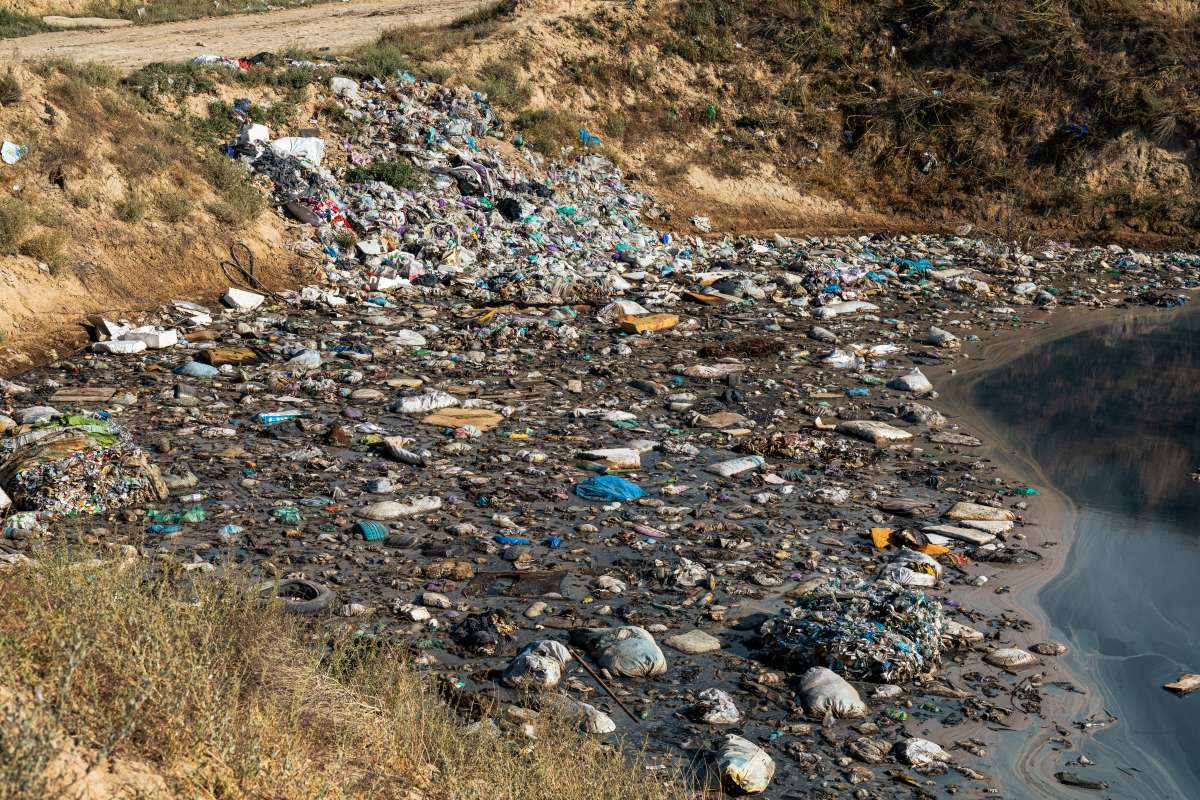
We owe it to future generations to dispose of dangerous materials in an eco-friendly manner. It was simply dumped into landfills before stricter regulations were enacted. The result was the contamination of groundwater supplies with harmful chemicals and toxins, which in turn led to the spread of disease. This is harmful to our ecosystems as a whole, not just to humans.
Effect On Humans
Extensive exposure to hazardous waste, regardless of its form, has been linked to a wide variety of health problems. Irritation of the skin, headaches, and even cancer are among these. Proper disposal of hazardous waste is essential for protecting the public from these risks and the unintended consequences of improper disposal. Asbestos, pesticides, car battery residue, solvents, and oils are just a few examples of toxic and chemically-laden materials that can have devastating effects on human health.
Effect On The Environment
Water is one resource we should be especially concerned about because it is finite on our planet. Making sure none of our hazardous waste is dumped in landfills or other areas where it can seep into groundwater is one step we can take to protect our future access to clean water.
- Pollution of water sources: When water is contaminated with hazardous waste, it becomes unsafe for human consumption and cannot be used for farming. All organisms that rely on an unpolluted water supply will be gravely threatened by this. Since human drinking water is purified, animal consumption of contaminated water is more common than in humans. However, animals will likely become sick and die if they drink water that contains hazardous waste.
- Wildfires – Some forms of hazardous waste are combustible, which means they can start fires that spread quickly and destroy large areas of land, as well as homes and wildlife. Anything that could explode or catch fire is extremely hazardous and must be handled with care.
- Wildlife - Many species of wildlife are in serious danger of extinction, and many others are in the process of doing so. Because of this, we must take all necessary measures to guarantee the well-being of all forms of life on Earth. If we let our hazardous waste contaminate the homes and water sources of our wildlife, many animals will suffer from illness and disease, and some may even undergo mutations as a result of their exposure to the waste.
- The potential for both short- and long-term effects on the environment from hazardous waste should also not be overlooked. When we talk about the "acute toxicity" of a substance, we mean that its effects are harmful even after a single exposure to it. On the other hand, chronic toxicity, which occurs when a substance is present in the environment for an extended period of time, causes contamination. Long-term effects occur when wildlife and humans absorb toxins like lead and mercury from the environment. These may have harmful long-term effects that don't manifest themselves until it's already too late.
How Can You Have Hazardous Waste Removed By A Waste Disposal Company?
If your company generates hazardous waste, you'll need to make arrangements with a waste removal service to have it removed. Hiring experts who have the necessary training and are aware of the dangers involved in transporting this kind of garbage is essential.
The garbage service may supply you with clip-top drums to secure disposal of various items. These drums provide a secure container for your hazardous waste until it can be collected.
The hazardous waste crew has extensive experience and can provide guidance at every step. No matter how much or how little trash you have, they'll show up with the appropriate vehicle and schedule regular pickups accordingly. These aid in eliminating uncertainty and guaranteeing full compliance during the hazardous waste collection process.
FAQs About Hazardous Waste Removal
Hazardous waste is any material that poses a threat to human health or the environment. This can include chemicals, solvents, batteries, electronics, and more.
Look for labels on the products or containers that indicate the presence of hazardous materials. Also, check with your local environmental or waste management agency for a list of common hazardous waste materials.
Hazardous waste must be handled, stored, and disposed of properly to prevent harm to people and the environment. This involves using appropriate personal protective equipment (PPE), storing hazardous waste in designated containers, and following specific guidelines for disposal.
No, hazardous waste cannot be disposed of with regular garbage. Most municipalities have specific programs for the disposal of hazardous waste, such as designated drop-off locations or special pick-up services.
Mishandling hazardous waste can result in serious health and environmental consequences, such as exposure to toxic chemicals, contamination of soil and water sources, and even fines or legal penalties.
Conclusion
In order to avoid negative impacts, hazardous waste must be disposed of properly. This includes materials such as solvents, acids, bases, metal finishing waste, painting waste, and sludges from air and water pollution control units.
These are typically byproducts of chemical manufacturing and processing. Trash is labelled and coded to assess its potential risk, and there are various programs for recycling and disposing of hazardous materials. Additionally, safe storage options exist to reduce risk.
Byteback is a computer recycling and donation program located in Victoria, Australia. Old phones and accessories can be recycled through mobile phone businesses, banks, and other retailers. Similarly, recycling printer cartridges (both laser and inkjet), reusing LPG cylinders, recycling CFLs and other mercury-containing light bulbs, and reusing plastic supermarket bags are all effective ways to reduce waste.
Only licensed facilities are authorised to handle and dispose of hazardous materials. Chemical, thermal, biological, and physical processes are among the methods used to manage hazardous waste. Proper disposal procedures must be followed to prevent harmful chemicals and poisons from polluting water sources by seeping into the ground or surface water, corroding pipes, or clogging storm drains. Improper waste management practices may result in penalties.
Proper waste management is critical for public health and to avoid unforeseen consequences. It ensures that no hazardous waste is put in landfills or other sites where it can seep into groundwater, which can cause contamination of groundwater supplies and spread disease.
Hazardous waste can negatively impact wildlife, including animals and forests. Due to its potential to have both immediate and long-term consequences for the environment, hazardous waste disposal requires precautions to protect all forms of life on Earth.
Hazardous waste must be disposed of by experts with proper training and knowledge. The hazardous waste crew provides guidance and scheduled pickups for compliance, and clip-top drums offer a safe place to store garbage until it can be removed.
Content Summary
- Hazardous waste must be safely discarded to avoid unintended consequences.
- Proper management of hazardous waste is crucial to preventing harm to people and the environment.
- Hazardous waste is generated by numerous sectors, mainly chemical manufacturing and processing.
- Household waste includes solvents from cleaning, used acids and bases, metal finishing waste, painting waste, and many other materials.
- Hazardous waste is classified based on their biological, chemical, and physical characteristics.
- Mishandling hazardous materials by disposing of them in the wrong containers or flushing them down the toilet is a common problem.
- Hazardous wastes must be stored safely while waiting for appropriate disposal methods.
- Computers are recyclable and contain harmful chemicals if not disposed of correctly.
- Byteback is a program in Victoria that allows people to donate and recycle their old computer parts.
- Mobile phones and their accessories, including batteries, contain heavy metals that can be recycled.
- The mobile phone industry's recycling program allows used mobile phones to be recycled at mobile phone retailers, some banks, and other retail stores.
- Liquefied petroleum gas (LPG) cylinders, such as those used in grills, can be returned and refilled through swap programs.
- Oils from used cars can be reused and returned at Victoria's transfer stations.
- Cartridges for laser printers and inkjet printers can be recycled at Australia Post and Harvey Norman stores.
- Fluorescent tubes, compact fluorescent globes (CFLs), and other mercury products can be dropped off at Detox your home collections.
- Plastic shopping bags pose a potential danger to wildlife if they end up in waterways.
- Medications that are no longer needed can be returned to a pharmacy through the Return of Unwanted Medicines program.
- Hazardous waste disposal is more difficult than regular municipal waste disposal.
- Hazardous waste disposal must only be handled by approved businesses to minimise contamination and damage.
- Corrosive or flammable waste can pose threats to facilities and should only be disposed of in secure landfills.
- Chemical, thermal, biological, and physical methods are all viable alternatives for dealing with hazardous waste.
- Improper disposal of hazardous waste can result in costly cleanup efforts.
- Harmful chemicals and poisons buried in the garden can seep into water sources and contaminate the soil.
- Mishandling of hazardous materials can lead to explosions and fires.
- Hazardous waste can harm people, animals, and the planet.
- The first step in hazardous waste disposal is determining if the trash poses any danger.
- Codes and labels are commonly used to identify hazardous waste.
- Recycling hazardous waste helps protect the environment.
- Proper disposal of hazardous waste is crucial for the prevention of diseases and pollution.
- Hazardous waste can have a severe impact on the environment and human health.
